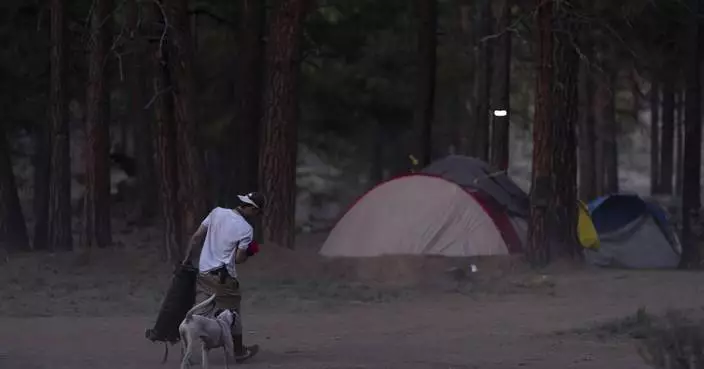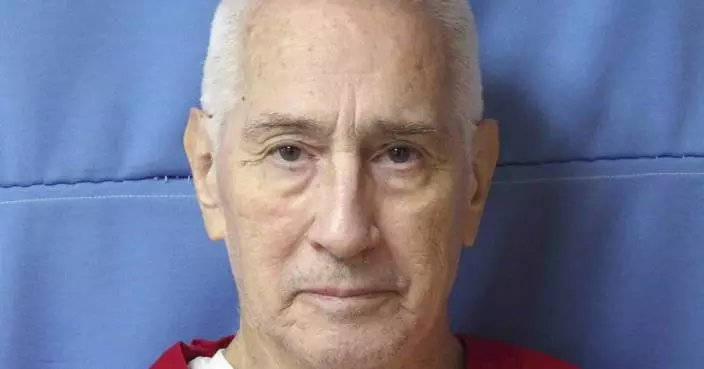The Dallas Stars have skidded into the playoffs on a seven-game losing streak.
Mason Marchment and other players say that skid doesn't matter, and coach Pete DeBoer knows that the Stars will ultimately be judged on what they do in the playoffs.
“No concern,” Marchment said. “We’re not going to worry about the regular season. It’s behind us now. ... We’re going to turn the page and ramp it up here.”
The Stars have no choice if they want another long playoff run after making it to the West final each of the past two seasons. Dallas, still the No. 2 seed in the Western Conference, opens the postseason Saturday night with Game 1 at home against rested Central Division rival Colorado. The Avalanche finished their regular season last Sunday.
“We’ve got to figure it out. I mean, you know, Saturday’s the first time in probably three weeks where we’re playing basically with our season back on the line again,” DeBoer said. “So our desperation level has to be there, our execution has to be there. ... We’ve got to make sure we’re ready for that.”
Dallas has been locked into a playoff spot since March 29, and the first-round matchup against the Avs has been anticipated for even longer than that. They met in a second-round series last year that the Stars won in six games against the then-defending Stanley Cup champions.
The Stars have gone 0-5-2 since getting their 50th win of the season April 3 at home against Nashville. They were outscored 34-18 while being outshot by an average margin of 10 a game in that stretch that culminated with a 5-1 loss at the Predators on Wednesday night.
“It doesn’t really matter. You’d like to be going into the playoffs in a different way. We went in the playoffs last year like 10-2 and lost the first two games,” Tyler Seguin said. “This year we're going in oh-and-whatever. All that matters is the puck drop on Saturday, so we’ll move on pretty quickly.”
Dallas is only the ninth team in NHL history to enter the playoffs on a winless streak of at least seven games, according to SportRadar. The record of eight is shared by the 1987-88 Chicago Blackhawks and 1991-92 Montreal Canadiens.
The last team to do it was the New York Islanders with an 0-3-4 stretch to end the 2019-20 regular season that was suspended that March and never resumed because of the COVID-19 pandemic. They were part of the modified playoff that began about 4 1/2 months later in a Canadian-based bubble, and lost in the Eastern Conference Final.
Only the 2001-02 Detroit Red Wings went on to win the Stanley Cup after skidding into the postseason with that long of a winless streak — a seven-gamer than included two ties. They were also the last team before the Islanders to even make the playoffs with that kind of finish to the regular season.
Seguin returned for the Stars' regular-season finale after missing 58 games following hip surgery in early December. He had the secondary assist on Marchment's goal only 16 seconds into the loss at Nashville.
The 33-year-old Seguin has 21 points (nine goals, 12 assists) in the 20 games he has played this season.
In the same game that their six-time All-Star returned to the lineup, top goal scorer Jason Robertson (35 goals) played only six minutes before exiting with a lower body injury. His status for the playoff opener is uncertain.
Dallas is still without standout defenseman Miro Heiskanen, who missed the last 32 regular-season games since after injuring is left knee against Vegas on Jan. 28. He later had surgery and hasn't yet returned to practice.
AP NHL: https://apnews.com/hub/nhl

Dallas Stars left wing Jason Robertson (21) protects the puck from Detroit Red Wings defenseman Albert Johansson (20) in the second period of an NHL hockey game Monday, April 14, 2025, in Detroit. (AP Photo/Paul Sancya)

Dallas Stars left wing Jamie Benn (14) scores on Detroit Red Wings goaltender Cam Talbot (39) in the first period of an NHL hockey game Monday, April 14, 2025, in Detroit. (AP Photo/Paul Sancya)

Dallas Stars left wing Mason Marchment (27) celebrates his goal with center Matt Duchene (95) and left wing Jamie Benn (14) during the first period of an NHL hockey game against the Nashville Predators, Wednesday, April 16, 2025, in Nashville, Tenn. (AP Photo/George Walker IV)

Dallas Stars left wing Mason Marchment, center, celebrates his goal with center Tyler Seguin (91) during the first period of an NHL hockey game against the Nashville Predators, Wednesday, April 16, 2025, in Nashville, Tenn. (AP Photo/George Walker IV)
A federal judge on Thursday barred the Trump administration from deporting any Venezuelans from South Texas under an 18th-century wartime law and said President Donald Trump's invocation of it was “unlawful.”
U.S. District Court Judge Fernando Rodriguez Jr. is the first judge to rule that the Alien Enemies Act cannot be used against people who, the Republican administration claims, are gang members invading the United States. Rodriguez said he wouldn't interfere with the government's right to deport people in the country illegally through other means, but it could not rely on the 227-year-old law to do so.
“Neither the Court nor the parties question that the Executive Branch can direct the detention and removal of aliens who engage in criminal activity in the United States,” wrote Rodriguez, who was nominated by Trump in 2018. But, the judge said, "the President’s invocation of the AEA through the Proclamation exceeds the scope of the statute and is contrary to the plain, ordinary meaning of the statute’s terms.”
In March, Trump issued a proclamation claiming that the Venezuelan gang Tren de Aragua was invading the U.S. He said he had special powers to deport immigrants, identified by his administration as gang members, without the usual court proceedings.
"The Court concludes that the President’s invocation of the AEA through the Proclamation exceeds the scope of the statute and, as a result, is unlawful,” Rodriguez wrote.
In an interview on Fox News, Vice President JD Vance said the administration will be “aggressively appealing” the ruling and others that hem in the president's deportation power.
“The judge doesn’t make that determination, whether the Alien Enemies Act can be deployed,” Vance said. “I think the president of the United States is the one who determines whether this country is being invaded.”
The chair of the Congressional Hispanic Caucus, Rep. Adriano Espaillat, D-N.Y., said in a statement the judge had made clear “what we all knew to be true: The Trump administration illegally used the Alien Enemies Act to deport people without due process.”
The Alien Enemies Act has only been used three times before in U.S. history, most recently during World War II, when it was cited to intern Japanese-Americans.
The proclamation triggered a flurry of litigation as the administration tried to ship migrants it claimed were gang members to a notorious prison in El Salvador.
Rodriguez’s ruling is significant because it is the first formal permanent injunction against the administration using the AEA and contends the president is misusing the law. "Congress never meant for this law to be used in this manner,” said Lee Gelernt, the ACLU lawyer who argued the case, in response to the ruling.
Rodriguez agreed, noting that the provision has only been used during the two World Wars and the War of 1812. Trump claimed Tren de Aragua was acting at the behest of the Venezuelan government, but Rodriguez found that the activities the administration accused it of did not amount to an invasion or “predatory incursion,” as the statute requires.
“The Proclamation makes no reference to and in no manner suggests that a threat exists of an organized, armed group of individuals entering the United States at the direction of Venezuela to conquer the country or assume control over a portion of the nation,” Rodriguez wrote. “Thus, the Proclamation’s language cannot be read as describing conduct that falls within the meaning of ‘invasion’ for purposes of the AEA.”
If the administration appeals, it would go first to the New Orleans-based 5th U.S. Circuit Court of Appeals. That is among the nation’s most conservative appeals courts and it also has ruled against what it saw as overreach on immigration matters by both the Obama and Biden administrations. In those cases, Democratic administrations had sought to make it easier for immigrants to remain in the U.S.
The administration, as it has in other cases challenging its expansive view of presidential power, could turn to appellate courts, including the U.S. Supreme Court, in the form of an emergency motion for a stay pending an appeal.
The Supreme Court already has weighed in once on the issue of deportations under the AEA. The justices held that migrants alleged to be gang members must be given “reasonable time” to contest their removal from the country. The court has not specified the length of time.
It’s possible that the losing side in the 5th Circuit would file an emergency appeal with the justices that also would ask them to short-circuit lower court action in favor of a definitive ruling from the nation’s highest court. Such a decision likely would be months away, at least.
The Texas case is just one piece of a tangle of litigation sparked by Trump's proclamation.
The ACLU initially filed suit in the nation's capital to block deportations. U.S. District Judge James E. Boasberg issued a temporary hold on removals and ordered the administration turn around planes that had left with detainees headed to El Salvador, a directive that was apparently ignored. Later, the Supreme Court weighed in.
The justices stepped in again late last month with an unusual postmidnight order halting deportations from North Texas, where the ACLU contended the administration was preparing for another round of flights to El Salvador.
Riccardi reported from Denver. Associated Press writers Lindsay Whitehurst and Mark Sherman contributed to this report.
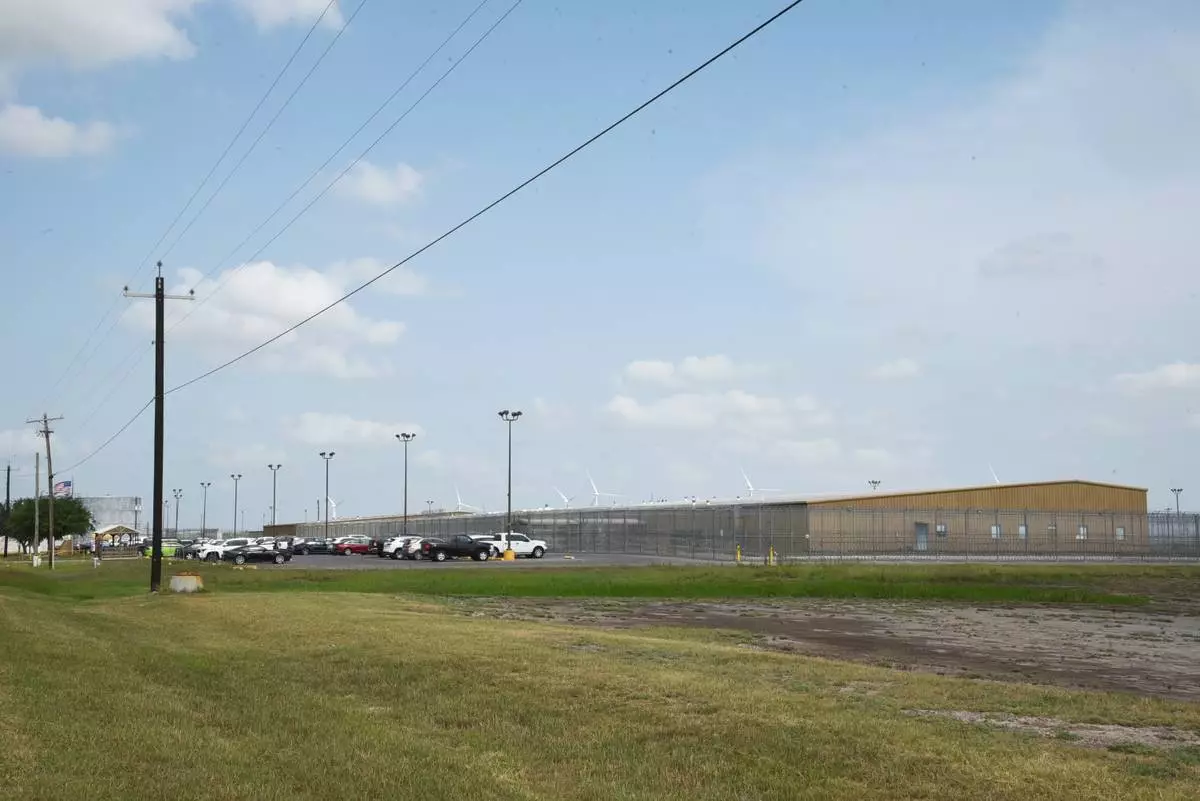
The El Valle Detention Center in Raymondville, Texas is pictured, Thursday, May 1, 2025, after a federal judge in the district barred the Trump administration from deporting any Venezuelans at the south Texas detention center under the Alien Enemies Act, an 18th-century wartime law. (AP Photo/Valerie Gonzalez)
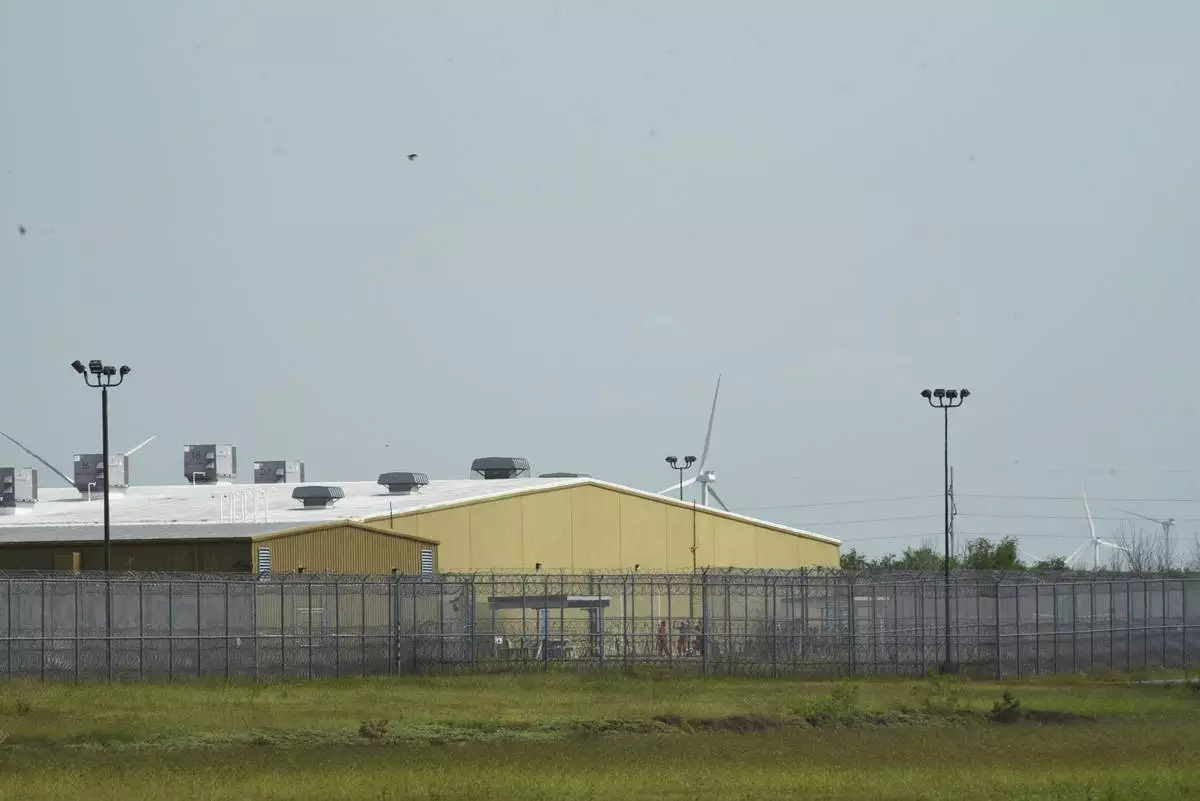
Detainees held at El Valle Detention Center in Raymondville, Texas are seen outside briefly, Thursday, May 1, 2025, after a federal judge in the district barred the Trump administration from deporting any Venezuelans from South Texas under the Alien Enemies Act, an 18th-century wartime law. (AP Photo/Valerie Gonzalez)

The El Valle Detention Center in Raymondville, Texas is pictured, Thursday, May 1, 2025, after a federal judge in the district barred the Trump administration from deporting any Venezuelans at the south Texas detention center under the Alien Enemies Act, an 18th-century wartime law. (AP Photo/Valerie Gonzalez)
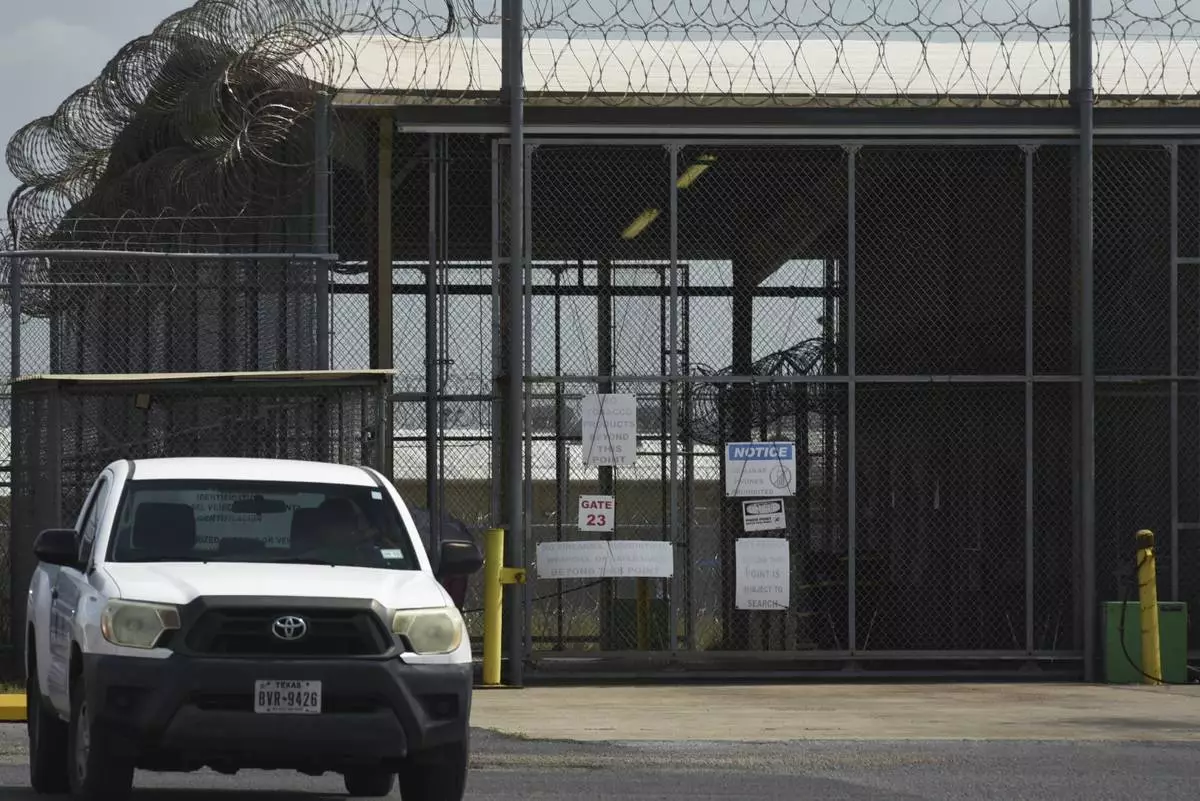
The El Valle Detention Center in Raymondville, Texas is pictured, Thursday, May 1, 2025, after a federal judge in the district barred the Trump administration from deporting any Venezuelans at the south Texas detention center under the Alien Enemies Act, an 18th-century wartime law. (AP Photo/Valerie Gonzalez)
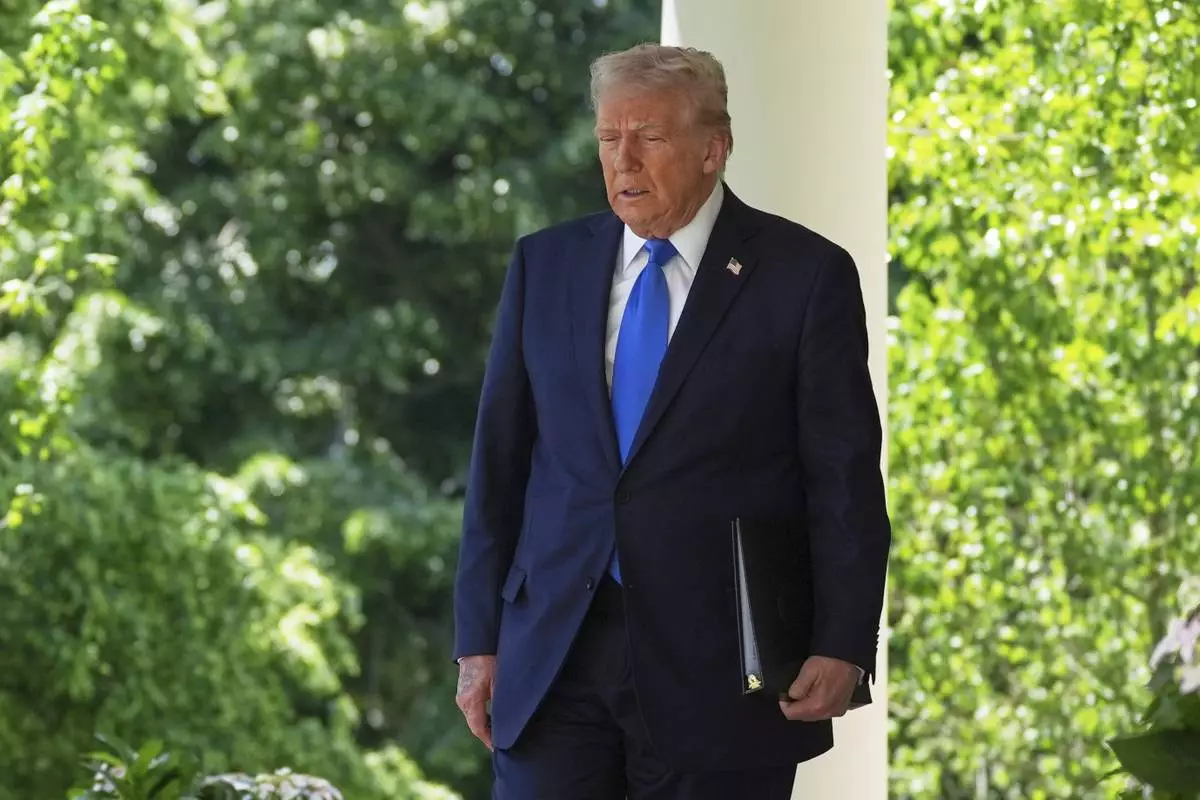
President Donald Trump arrives to speak during a National Day of Prayer event in the Rose Garden of the White House, Thursday, May 1, 2025, in Washington. (AP Photo/Evan Vucci)












